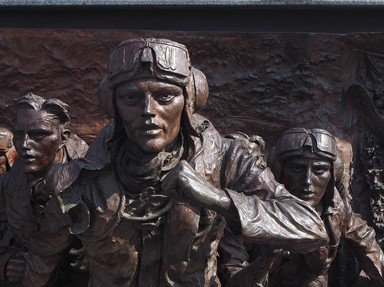Quiz Answer Key and Fun Facts
1. After the Battle of France came the Battle of Britain. This was a battle in the skies between the RAF and the Luftwaffe for air superiority. What was the plan issued by Hitler which spoke of the German plan to invade Britain?
2. It has been suggested that invading Britain had an ambiguous priority for the Nazi leadership, which saw Britain mainly as an obstacle to plans for a land campaign in Eastern Europe. This was reflected by the fact that Hitler actually proposed a peace to Britain. In what month was this offer made?
3. Following Britain's refusal of the German peace offer, Germany began its attack on Britain. However, the Germans' first target made little impact on the British armed forces. It was instead another attempt to force Britain to accept peace. What was the Germans' first target?
4. The German attacks then became more severe as the Luftwaffe targeted fighter stations. Which of these was one of the stations targeted?
5. In early September 1940 Britain was thought to be close to defeat. However, what German action on 7th September 1940 relieved the pressure on the RAF, allowing them to recuperate?
6. Britain was able to gather enough fighters to launch effective attacks on the Luftwaffe. One such example was on 15th September where over 200 German planes were intercepted by the RAF, which shot down 60, significantly changing the course of this battle. Who was the Commander-in-Chief of Fighter Command at the time?
7. Daylight raids of London became less and less frequent, suggesting the RAF had gained air superiority. Another reason for Britain starting to get on top of Germany in the sky was the fact that Britain was producing twice as many fighter planes as Germany during this period. Appointed in May 1940 as Minister of Air production, who is largely responsible for this rapid rate of production?
8. The fighters being produced in Britain were the Spitfire and the Hurricane. Against which plane would they most likely to have been fighting?
9. Another reason for Britain's victory in the Battle of Britain was the tactics in the air. An example of this was instructing Spitfire planes to target German fighters (due to their manoeuvrability) and for the Hurricane to target German bombers (due to their ability to take more damage). Who suggested this tactic?
10. It would have been difficult to have won the Battle of Britain without the British people. These people contributed to the victory either as pilots or in the early warning system, where they watched for German planes and reported back to Fighter Command. Which organization were those involved in the early warning system most likely a part of?
Source: Author
doublemm
This quiz was reviewed by FunTrivia editor
bloomsby before going online.
Any errors found in FunTrivia content are routinely corrected through our feedback system.

